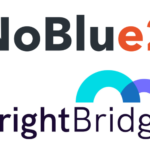Business environments are always changing, so businesses need to change too, or risk being left behind. On the face of it, this can seem terrifying and overwhelming. How do you respond to something that might happen? How do you implement change alongside keeping your day-to-day operations running? What about the cost of new technology or additional staff?
But future-proofing your business doesn’t have to be terrifying or expensive. Here we’ll run through some of the reasons that businesses might not be ready for what’s coming, and what they can do to get ready, with some examples of companies who’ve done just that.
What is Future-proofing?
Put simply, future proofing is the process of anticipating the future and acting to protect your business against potential problems and stresses that may arise. Staying ahead of challenges and reacting to change. It’s about keeping an ear to the ground for what’s happening in your industry and what your competitors and customers are doing, and evolving accordingly.
“Success today requires the agility and drive to constantly rethink, reinvigorate, react, and reinvent.” — Bill Gates
Future-proofing doesn’t have to mean massive overnight changes. In our infographic and article below, we outline some ways that businesses can remain relevant whilst continuing to grow and innovate.
Why Future-proof Your Business?
The list of companies that have been caught on the hop by changes in technology, society, consumer behaviour and so on is endless. Whether it’s the likes of BHS and Debenhams that were slow to adapt to changing shopping habits and customer behaviour, or the well-known example of Blockbuster who just couldn’t compete with Netflix’s online-only model, even the biggest names can be consigned to the history books. Businesses have to change, and change quickly, or they risk going the way of Blackberry, Kodak, MySpace and Warner Brothers.
Of course, nobody knows what the future holds (the last couple of years have proved that!), but looking back, we can see that the companies that have survived and thrived have been those that have adapted, done their research, embraced new technologies and ways of working and listened to what their customers and staff want and need.
Why Are Businesses Not Prepared for the Future?
One of the main problems is, many businesses simply don’t realise they’ve been too slow to react or adapt until it’s too late. Future-proofing is a continuous process of listening, learning, trying (and sometimes failing) and adapting. It seems simple and obvious enough, but in reality it’s much more complicated, and there’s a whole host of reasons why businesses may just simply not be prepared for what’s ahead. Obviously, there’s the fact that the future is unknown, so you can’t possibly be prepared for EVERYTHING, but there are also a lot of organisation-based reasons for companies being ill-prepared for what’s coming:
Lack of resources
Whether it’s money, time or people, a perceived lack of resources can be a big factor in businesses being under-prepared. In reality, while some changes will cost money or take time, future-proofing fundamentally involves a change in mindset!
Size of the organisation
Organisations both small and large can have problems adapting and changing. While smaller companies may simply not have the resources to commit to changes, larger companies can struggle with agility, and rely too heavily on their size and reputation.
Complacency
It’s easy for businesses to get stuck doing the same things the same way for years. After all, if it’s not broke, why fix it? But sooner or later, something new is bound to come along, whether that’s technology, products, habits or competitors, and if you don’t take advantage, you’ll find yourself left behind.
Fear of the unknown
Taking risks is undoubtedly intimidating. What if you try something and it doesn’t work? But, if you never try something new, your business is likely to stagnate, and you’ll never learn what really does and doesn’t work.
Not listening
Businesses that don’t listen to what their customers and employees want are eventually doomed to failure. Likewise companies that don’t have an ear to the ground for what’s going on in their industries. If you don’t your competitors will do, and they’ll be the ones to reap the benefits.
Netflix are constantly listening to and learning from what their customers are doing, and using this to innovate. From offering home delivery and no late fees in the early days to continuously refining their algorithms, to eventually using data to produce their own on-demand content, they now have over 200 million subscribers worldwide, and have changed the face of home entertainment forever.
How You Can Future-proof Your Business and Stay Relevant
Here are just some of the ways businesses can become more prepared for the future:
Embrace the Core Values of Agility
Agility is a word that’s often thrown around in business, but this is for good reason. Without agility, businesses simply cannot move with the times and respond to threats and opportunities. Businesses have to react and reinvent, and do so quickly. There are three core values of agility that successful businesses recognise:
Customer
Your customers should always be top-of-mind. They know your brand, they like (if not love) your brand, and if they’re happy, they’ll spread the word about your brand. So listen to them, respond to demands and tailor your processes and systems to them. Respond to feedback, good or bad, and be aware of changing needs, both throughout your own customer lifecycle and within your industry or market.
Growth
Having a growth mindset is crucial. Remembering that failure doesn’t mean the end of the world is hard, but you have to be prepared to fail in order to succeed. Without failures, many of the biggest names in business today wouldn’t be where they are. Failure is part of how we learn and grow, and it’s the ability to bounce back that marks those companies that have survived and thrived.
Team
The importance of your team can’t be overstated. Building a team that is well-connected, and that is able to react to changes is vital, as is having people in the right roles. Look at strengths and weaknesses within your team, and identify any gaps. Give people room to grow, and provide them with clear, consistent and constructive feedback.
Invest in Technology and New Opportunities
For the vast majority of businesses, a website is a vital part of, well, doing business. An outdated, slow or poorly designed website reflects badly on your business.
But it’s not just about your website. There’s also the technology you use within your company. So many organisations struggle with outdated systems, systems that don’t work together, or systems that just don’t do what the business needs them to do. Not to mention convoluted or just plain inefficient processes.
That’s where software such as NetSuite ERP comes in. An ERP is a unified suite of software that can take care of all business processes. Any business can benefit from this, from small companies right up to huge, multinational enterprises. ERP software provides the agility, data management and efficiency that businesses need if they want to grow and succeed, so it’s certainly a worthwhile investment in a company’s future.
A good example of failure to do this is Blockbuster… who declined to buy Netflix for $50 million back in 2000. Although, who’s to say they would have taken the company in the same direction or to the same level of success?
“We have seen most businesses have to flex to allow their staff to work remotely, introduce new processes to cope with compliance changes and COVID challenges. Never has it been more important to consider cloud products that do not leave you locked into one way of working without a very expensive re-work/implementation.” – David Atherton, Sales Director – NoBlue
Know Your Competitors
Research your competitors – knowing who your competitors are, keeping track of newcomers to the market, and seeing where they’re succeeding are all vital. What are they doing that’s better than you? Are they cheaper? Faster? More reactive? Are they using automation or AI to create efficiencies? Find ways to get in there first, or someone else will!
Build Your Brand
Even if you don’t have the massive budgets/reach/worldwide fame of the likes of Amazon, Netflix, Disney or Apple, it is still possible and indeed vital, to build a solid and well-defined brand. It’s more than just your logo and website: it’s knowing your customers and your strategy. Your brand identity should show through in everything that you do, in every interaction with your customers and in your social media channels.
Part of this may be your focus. Coming back to Netflix, they know they can’t compete on breadth of offering with Amazon, Apple and Sky, so they focus on one thing, and they do it well. Another part is your values. Spend time defining your brand values, and then ensuring that you and your team live by them.
All of this will help to move your customers from choosing, to using, to loving, your brand.
Be Human
The future of business is definitely moving towards being “kinder”, whether that’s to staff and customers or the environment.
Diversity – It’s been proven that more diverse workforces are happier and more productive. Not only that, but a study by Deloitte found that diverse companies enjoy a 2.5% higher cash flow than those that haven’t embraced diversity.
Sustainability – customers are increasingly environmentally-savvy and they want to know that they’re buying from companies that support these values. Find ways to become greener as a company, whether that’s going paperless, introducing recycling schemes, switching energy suppliers or encouraging remote working.
Kindness – Make your processes and structures work for your team and your customers, not the other way round. Let staff work remotely, or around childcare if they wish. Make sure they’re clear on their roles, responsibilities and targets, and create an environment where open communication is encouraged at all levels of the company, as well as with customers.
Don’t Try to Reinvent the Wheel
Future-proofing is about making small adjustments, looking at the resources you have to see where they can better be used, and constantly learning from and refining the process. It’s not necessarily about making huge organisation-wide changes. Although there may be occasions where big changes are needed – moving toward using an ERP system, for example, or restructuring your teams – this should form part of a strategy, not be the end product.
David Atherton, NoBlue’s Sales Director, had this to say:
“Whilst seeing so much change and agility required through the Covid pandemic and to a lesser degree is some respects, Brexit, we are all mindful of what the future of business looks like. We have already seen an accelerated adoption of digital tools, such as web/app ordering add-ons for the food and drink industry, increase in contactless exchanges and change in product priorities. For the foreseeable future, businesses who will flourish are those able to deliver seamless customer experience through digital adoption along with those who have their finger on the pulse of the changing environment and demands of the consumers and businesses who have changed the priority on their services and goods due to the changing world.”
The Business of the Future
So, what does the business of the future look like? Obviously, the global pandemic has changed the way a lot of companies operate, the way people work, and the way customers behave, but it doesn’t need to take a huge global event for change to happen. Likewise, businesses don’t need to have a Disney or Walmart-sized budget to start future-proofing.
Future-proofing is not easy, but it’s necessary. Remember, you don’t need (and can’t have) all the answers right away, but with planning, resilience and agility, you’ll be as ready as you can be for whatever the future may bring.
Future-proof your business with NetSuite business management software from NoBlue, an award-winning 5* NetSuite partner.











